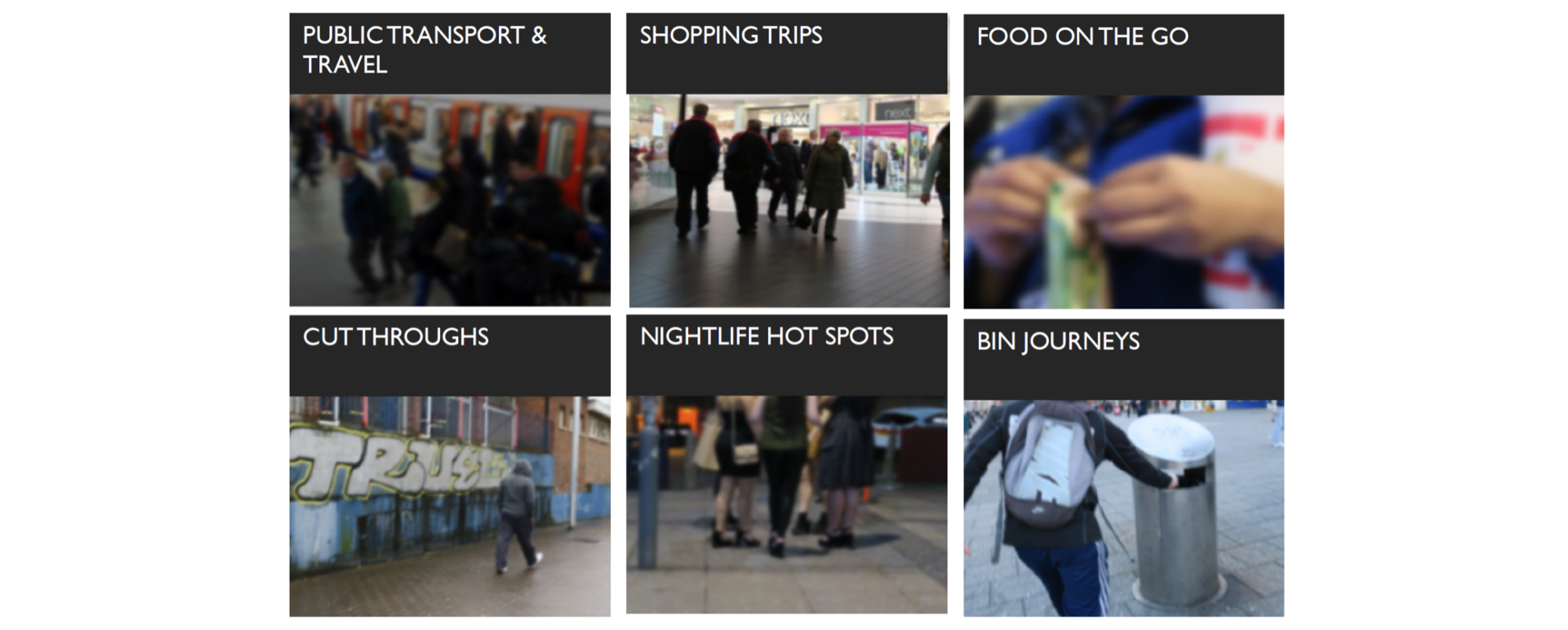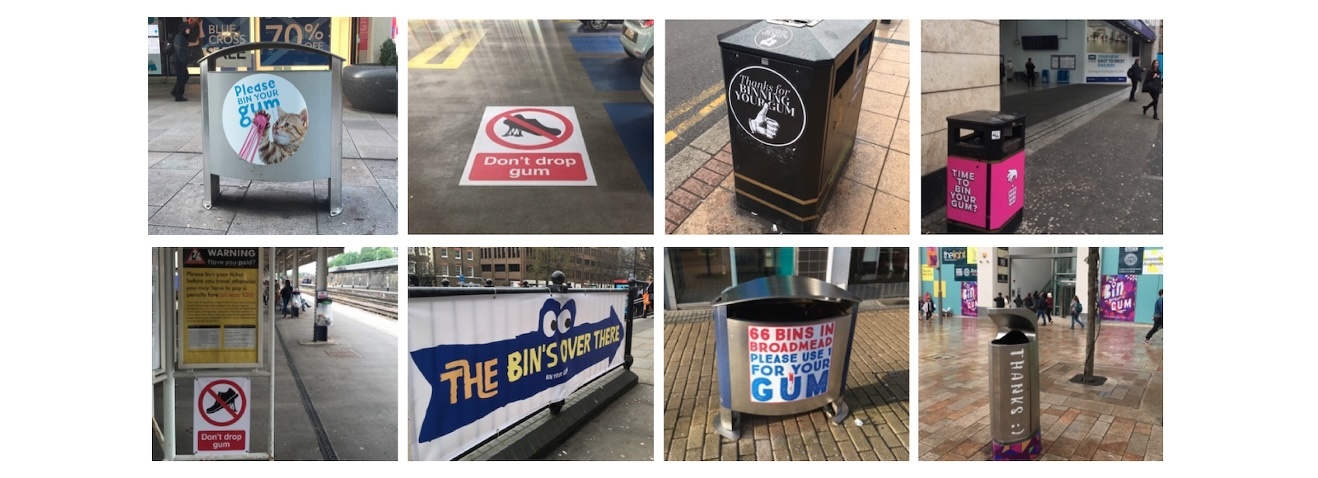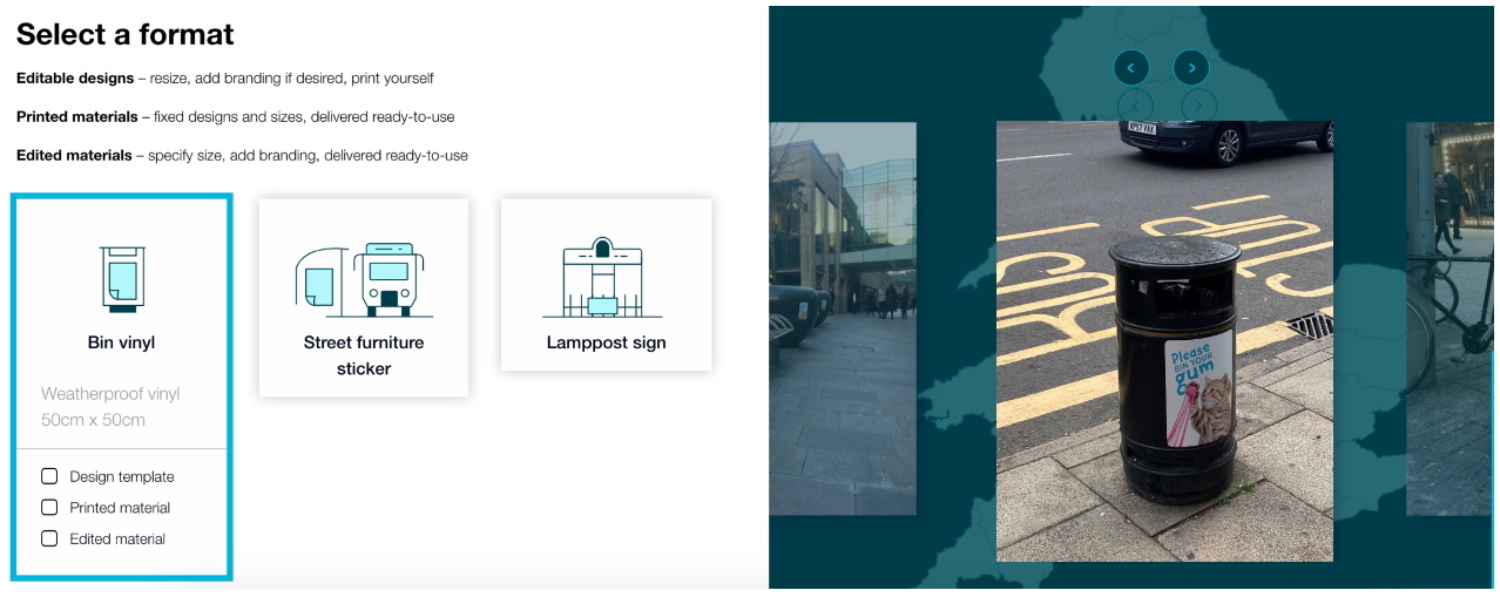Background
Most gum chewers don’t litter their gum – in fact, only 18% of people admit to ever having done so. However, littered gum is unsightly and hard to remove. Mars Wrigley have invested in tackling the problem through campaigns and initiatives for over 20 years.
In 2015, as part of an enhanced commitment to innovate further, they approached us to develop a new programme of interventions. After 5 years of research, development and pilots, we started rolling out proven solutions nationally and seeing local reductions in littering of more than 60%.
We’re now working with Defra and the gum industry more broadly, through the Chewing Gum Taskforce. Up to £10m over 5 years will be invested in gum clean up and behaviour change interventions across the UK. Independent evaluations in Year 1 councils have measured up to 80% reduction in gum littering.
Insight
Previous attempts to study gum littering behaviour had segmented people into groups more or less likely to litter but these were based on claimed data and led to an assumption that a hard core antisocial group was responsible. We commissioned a major new piece of ethnographic research from Revealing Reality to get under the skin of people’s behaviour and deliver fresh insight into what was really going on.
Our key finding was that most gum litterers do not litter all their gum
Likelihood to drop gum varies considerably and is determined much more by the situation people find themselves in than by the individual themselves. There is also often some pro-social motivation involved, people know it’s wrong and will often make at least a partial attempt to do the right thing. So our task is to help them do it more often.
The research logged 13 personal, social and environmental factors that influence people’s likelihood to drop gum. These included things like cognitive load (how much is on someone’s mind), public shame (how much they fear the judgement of others) and area dirtiness (whether they feel dropping gum would have an obvious impact). Most significantly, we were able to identify six circumstances where people are most likely to dispose of gum.

Intervention
In a series of workshops, we worked through these circumstances with the help of stakeholders such as local authority waste and enforcement teams and organisations like Keep Britain Tidy. In these sessions we used tools from behavioural science together with insights from the research to spark new ideas for interventions. Tools included:
- Social norms
- Affect
- Salience and reminders
- Moments of change
We took these ideas forward to create anti-littering nudges for a range of contexts including on bins, street furniture, railway station signage and even electronic bus stop indicators. Every intervention has been designed to be simple, low cost and scalable so that partners can easily replicate it.

Implementation
We spent 4 years piloting these interventions in partnership with local authorities, train companies and BIDs in Bristol, Cardiff, City of London, Croydon, Islington, Sheffield and Weymouth. Following the success of the trials, we launched an online toolkit designed for local practitioners with responsibility for tackling the problem. It enables local authorities and other land owners to access readymade campaigns for free, to use in problem areas, either as editable designs or sets of printed materials.

Impact
The pilots were evaluated by BMG Research with unprecedented robustness, using detailed gum counts, high resolution imaging and CCTV to measure footfall (and therefore rate of littering not just absolute amount).
Despite the low cost/’low-fi’ nature of the interventions, all measurement sites during the pilots showed a significant reduction in littered gum of at least a third and in some cases over 60%. This effect was shown to be sustained over the long term, meaning a campaign can be retained for up to a year before losing effectiveness.
In addition, our tests showed that the campaigns can be more than twice as effective as cleaning only. A site that has only been cleaned will return to a normal rate of littering after around 18 weeks. Given the considerable expense of cleaning, this has important implications for local authorities and other land owners.
We are now delivering the gum littering prevention programme of the Chewing Gum Taskforce. This will see £10m invested over 5 years by Mars Wrigley and other gum producers in a programme of street cleansing grants for Local Authorities (managed by Keep Britain Tidy) and the deployment of our behaviour change interventions. The grant fund launched in May 2022, with the fourth year now well underway.
By combining targeted street cleansing with specially designed signage to encourage people to bin their gum, independent evaluations have shown reductions in gum littering of up to 80% in the first two months, with a reduced rate of gum littering still being observed after six months.
This work has been published in the Keep Britain Tidy Journal of Litter and Environmental Quality.